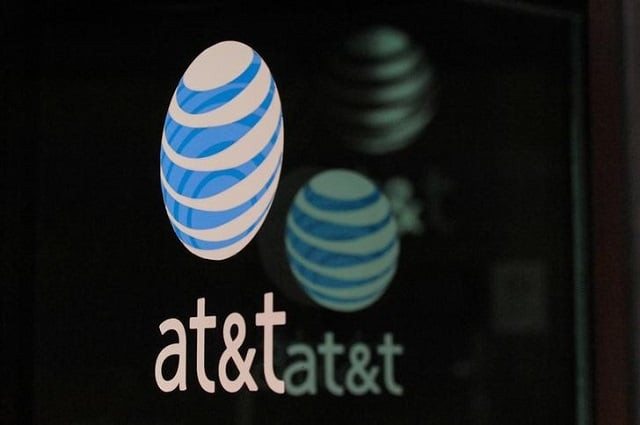AT&T economist argues Time Warner merger is good for consumers
The government filed a lawsuit in November to block the deal, citing antitrust concerns

An AT&T logo is seen at a AT&T building in New York City, October 23, 2016.
PHOTO: REUTERS
Dennis Carlton, from the University of Chicago, sought to rebut testimony on Wednesday from an economist for the government, Carl Shapiro of the University of California at Berkeley, who said the $84.5 billion deal would cost American consumers some $286 annually in higher prices.
US judge rejects demand to exclude AT&T argument
The government filed a lawsuit in November to block the deal, citing antitrust concerns. US District Judge Richard Leon will order the deal stopped if he determines it would raise prices for pay TV consumers or threaten the development of online video.
Shapiro had argued that the proposed deal would spur AT&T, which owns DirecTV, to charge its pay TV rivals more for Time Warner content, in particular, the Turner family of news and sports shows.
He also said the combined company would have an incentive to decline to offer content to cheaper online video services.
Carlton attacked the assumptions in Shapiro’s testimony and used newer data to show that by his tally, the deal would provide a net benefit to consumers of 52 cents per pay-TV subscriber a month.
“There is an efficiency from vertical integration,” argued Carlton. The proposed transaction is considered a vertical deal since AT&T, which owns satellite television company DirecTV, is buying a content supplier, Time Warner.
Carlton said Shapiro underestimated how many people were dropping pay-TV altogether and overestimated how many people would leave their pay-TV provider if they lost access to Turner’s channels.
AT&T merger judge says 'no big issues' in trial preparations
On cross-examination, government attorney Craig Conrath sought unsuccessfully to push Carlton to concede that a previous vertical deal, Comcast’s purchase of NBCU, led to more expensive TV shows and movies when NBCU negotiated new contracts with other pay TV companies.
The trial, which began in mid-March in US District Court in Washington, is expected to wrap up this month.
In a sign of the high stakes of the trial, the head of the Justice Department’s antitrust division, Makan Delrahim, sat at the government counsel’s table on Thursday, prompting a reaction from Leon, who said: “My goodness gracious,” when Delrahim introduced himself.



















COMMENTS
Comments are moderated and generally will be posted if they are on-topic and not abusive.
For more information, please see our Comments FAQ